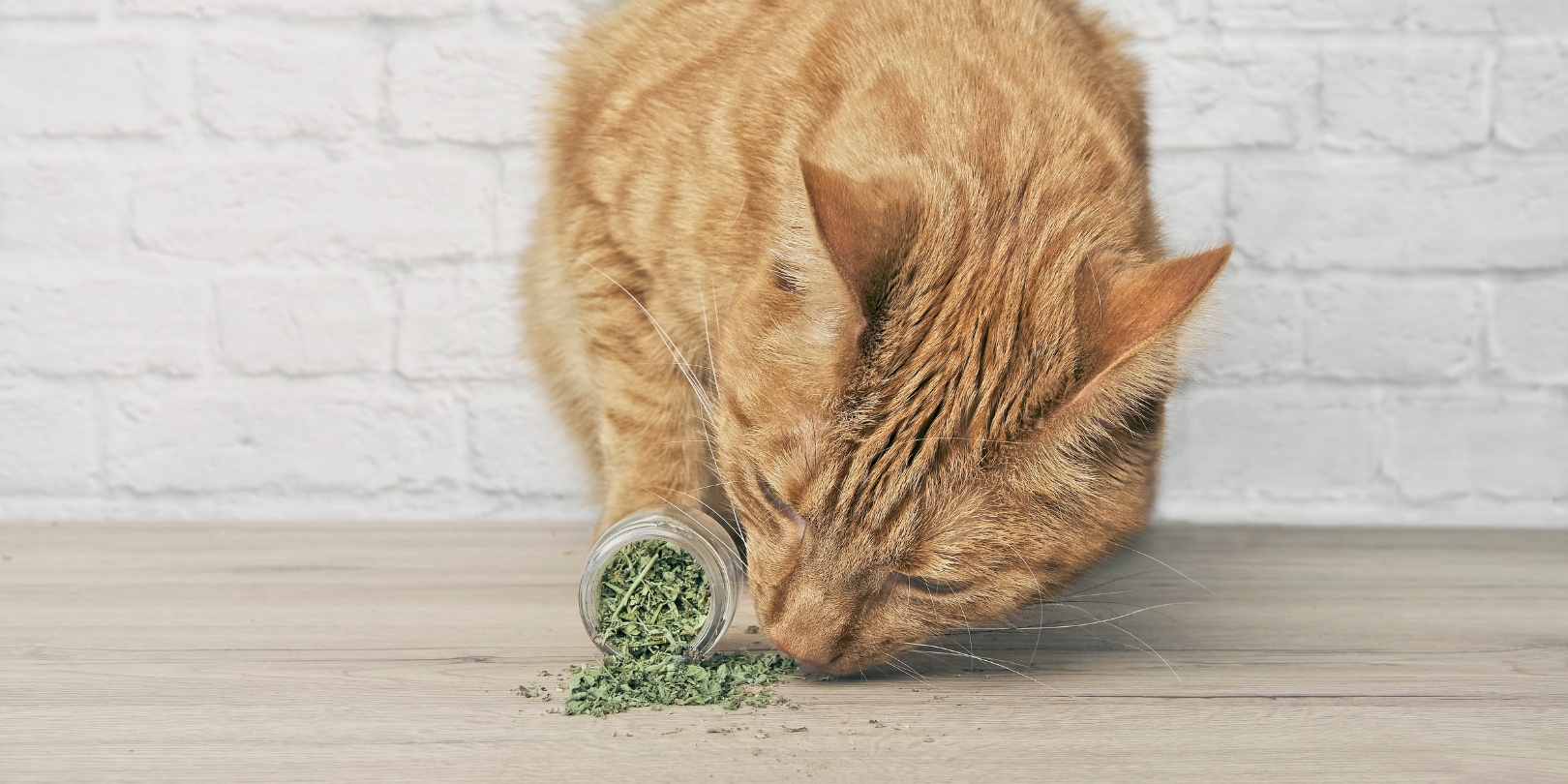What is Cat Nip? Safety Tips and Alternatives

xr:d:DAFo1FL9DFI:492,j:1421284219116661225,t:23080307
Catnip, scientifically known as Nepeta cataria, is a well-known herb that has a profound effect on many cats. When exposed to catnip, some felines exhibit peculiar behaviors, such as rolling, rubbing, purring, and leaping with excitement. However, not all cats react to catnip, as it seems to be genetically linked. While catnip can provide enjoyment for your furry companion, it’s essential to use it responsibly and ensure your pet’s safety. In this blog, we’ll explore what catnip is, the effects it can have on cats, safety considerations, and alternative ways to provide entertainment and stimulation for your beloved feline friend.
Understanding Catnip
Catnip is a perennial herb from the mint family that contains a chemical compound called nepetalactone. This compound, found in the leaves and stems of the plant, is responsible for the unique reactions observed in cats. When cats inhale the scent of catnip or come into contact with it, the nepetalactone binds to receptors in their nasal tissue, stimulating sensory neurons in the brain. This interaction triggers a series of behaviors that can range from playful and euphoric to relaxed and sedated.
The Effects of Catnip on Cats
The response to catnip varies from cat to cat, and it does not necessarily affect all cats. Approximately 50-75% of cats, including both domestic and wild species, are sensitive to catnip’s allure. Kittens and elderly cats are less likely to respond to catnip, as sensitivity is often acquired with age. The effects of catnip typically last for about 10-15 minutes, after which cats may become temporarily immune to its effects for a short period.
Catnip Safety Considerations
Catnip is generally safe for cats, and the reactions they experience are non-addictive and harmless. However, moderation is key, as excessive exposure to catnip can lead to habituation, where cats may lose interest in it over time. To ensure your cat’s safety and prevent overstimulation, it’s recommended to offer catnip sparingly and occasionally, typically no more than once a week.
Furthermore, if you have multiple cats, it’s essential to observe their interactions with catnip. While some cats may become playful and euphoric, others may display signs of aggression or territorial behavior in response to the herb. In such cases, it’s best to avoid using catnip altogether to maintain harmony among your feline companions.
Alternative Cat Toys and Activities
Catnip can be offered on its own, but there are also various cat toys that can hold catnip to give your pet a fun and unique experience. Since many cats will feel playful after exposure to the herb, it’s also a good idea to provide plenty of toys and activities to keep your furry friend entertained and mentally engaged. Interactive cat toys, such as wand toys, feather teasers, and laser pointers, mimic prey and encourage your cat to chase, pounce, and play. Puzzle feeders provide a fun challenge during mealtime, stimulating your cat’s problem-solving skills. Scratching posts not only keep their claws in check but also serve as entertainment and a way to mark territory. You can transform simple cardboard boxes into fun play areas, and growing cat grass indoors offers a safe and natural way for them to nibble and graze. Get creative with DIY toys using safe materials like felt and feathers. Finally, providing a cozy window perch with a view lets them observe the outside world and satisfy their natural curiosity. With these options, you can ensure your cat stays happy, engaged, and mentally stimulated.
Final Note!
Catnip can be a delightful addition to your cat’s playtime, but it’s essential to use it responsibly and in moderation. Not all cats are sensitive to catnip, and some may react differently to it. As an alternative, a variety of safe and engaging toys and activities can keep your cat happy, mentally stimulated, and physically active. Always prioritize your cat’s well-being and consult your veterinarian if you have any concerns about using catnip or providing suitable forms of entertainment for your feline companion.
Your Pet’s Best Interest, Always
At Pet Institute, we take pet care seriously. We're dedicated to transparency, impartiality, and the well-being of your pets in every article, review, and recommendation we provide. Our unwavering commitment to these principles ensures that you, our valued reader, always receive reliable and unbiased information. Let us be your trusted guide in the world of pet care and companionship.